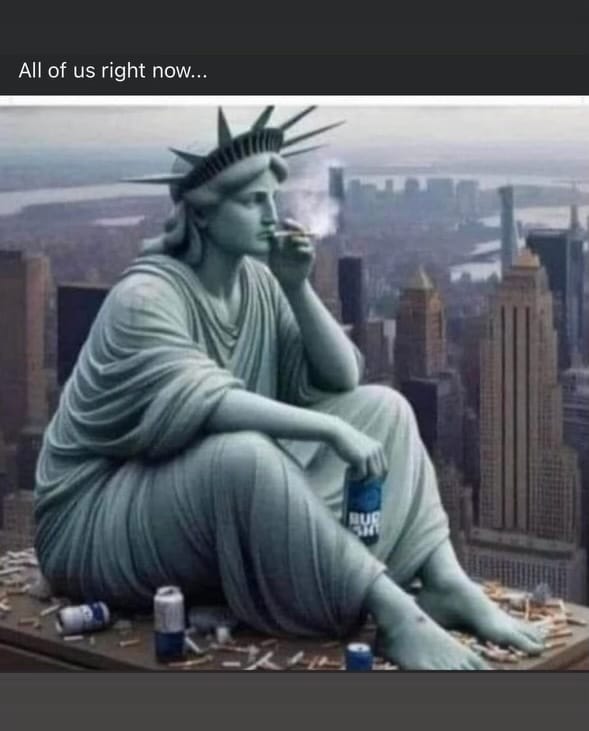- Captain Hook
- Posts
- So... Yeah, That Happened
So... Yeah, That Happened
I was in a bubble that burst. How about you? Thoughts on a weird week.

ICYMI: This bit of genius made the text thread rounds.
Some days you wake up to a new reality. I’m not qualified to analyze the politics of it all. I’m also wondering who is, given the countless pollster and pundit predictions that landed nowhere close to what actually unfolded Tuesday night into yesterday’s early morning hours.
Then there’s the emotional part. This “All of us right now…” meme featured above hit the bullseye for me and, if not for all across the broader Press Hook family, certainly many.
Yesterday dragged on like a big, weird, slow motion, devices-down moment. Between socials, streaming, and a bajillion other channels of light, sound, and stimulation, we’re manically distracted on an average day. But during a presidential election season, forget about it. And then, depending on what time you went to bed or woke up, the always-on of it all seemed to abruptly hit a wall — and switch off. Anxiety to… empty.
Here was an outcome that broke the spell not just of preferences but perspectives. I heard one political reporter call it a “narrative buster.”
Well, I don’t know about you, but I was in a bubble (that burst). And this part of it all — the media, communications, PR, storytelling, echo chamber factors — I may also not be qualified to analyze, but I definitely have questions.
What does it say about the power (or limitations and decline) of conventional advertising when the Harris-Walz campaign and allies spent an estimated $1.4 billion on TV spots (making this the most expensive U.S. election in history, even when adjusted for inflation), especially if that was reportedly $460 million more than their opponent?
Have we entered an era where paid media is no longer as valuable and impactful relative to earned? An era where what you can reliably track and budget isn’t necessarily what you can reliably count on to inspire and convert?
Are new media models introducing new standards for credibility and authenticity? (Especially for younger demos?)
If the algorithm can lock us away someplace comfortable and affirming but ultimately confining and artificial — like our own Barbie movie land — how do we recognize that? What else could we be missing? Do we have to venture out, exiling ourselves to explore and learn, even if it’s painful?
In a world awash with data, where anyone with a smartphone now possesses more ways to express and share their views than ever before in human history, how can formerly dependable constituencies end up defecting in such large numbers, entirely undetected? What’s the value of precision targeting without precision listening?
Has the power of celebrity become all light and no heat?
What do we deserve as consumers of information when the stakes are so significant? What are we actually getting when that information competes with entertainment? Are people earning multi-million-dollar salaries on cable news for their capacity to inform us as citizens — or their capacity to capture us as consumers?
What can we, as brands or journalists or content creators, learn from all this media disconnect and disruption? (And how will we ever learn without first “rolling up our sleeves” for the work of understanding it?)
Count on this, dear readers: there will be no shortage of looking back in the days, months, years, and decades ahead. Articles. Studies. Books. Documentaries. All the things. In political terms, maybe The New Yorker is onto something with this one. Who knows? The scholarship will go much deeper, and it will take more time to refine the resolution.
For now, anyone out there feeling stuck, or worse, I get it. In the quietest moments of yesterday, I thought about you.
Then I decided to roll up my sleeves and reach out. What are you thinking right now? Let me know here, if you’d like.
Either way, as we turn back to the grind, let’s “keep calmala and carry onala” as they say. After all, we’re a community far more powerful than we might believe right now.
Trust me.